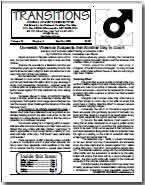The Equal Opportunity for Women in the Workplace Agency (EOWA) has issued a media release claiming that Australian workplaces discriminate against women because of an average gender wage difference between male and female graduates of $2,000. The source data cited actually found this difference was not due to discrimination but due to the fields of study chosen by males and females, along with other factors such as hours worked and type and location of employer.
Here is a copy of the media release along with our letter to the director of the EOWA in response.
Here is a copy of a reply by Helen Conway, Director of EOWA, claiming that “At this stage, there is no clear evidence that there is any statistical correlation between these ‘other factors’ and the differences observed in starting salaries between genders… In the circumstances, it is not unreasonable to conclude that, prima facie, discrimination is the reason for the anomaly.”
Unfortunately Ms Conway appears to be ignorant of the research on this issue. The Graduate Careers Australia (GCA) Graduate Salaries 2009 report conducted extensive research on this issue and found that there was indeed a statistical correlation between the gender wage gap and broad field of education, personal characteristics, enrolment characteristics, and other employment characteristics. It found that female graduates earned an average hourly starting salary 3% less than their male counterparts after controlling for a range of factors, and concluded “this does not necessarily mean that a female graduate commencing with a particular employer is paid less because she is female; however this finding does strongly suggest that female graduates do not have the same access to higher-paid positions as male graduates within a given type of employment.”
Note that GCA didn’t actually find any evidence of this, they just assumed it to be the case. Another likely explanation is that there are many other factors which GCA wasn’t able to test for which can explain the small 3% gender wage gap for new graduates. These were covered in great detail by Warren Farrell’s book Why Men Earn More: women commonly prefer jobs with shorter and more flexible hours to accommodate the demands of family. Compared to men, they generally favor jobs that involve little danger, no travel, little financial risk and good social skills. Such jobs generally pay less.
Source: EOWA Media Release & MHA Reply (http://menshealthaustralia.net/storage/files/EOWA_Wage_Gap_Jan_12.pdf)


